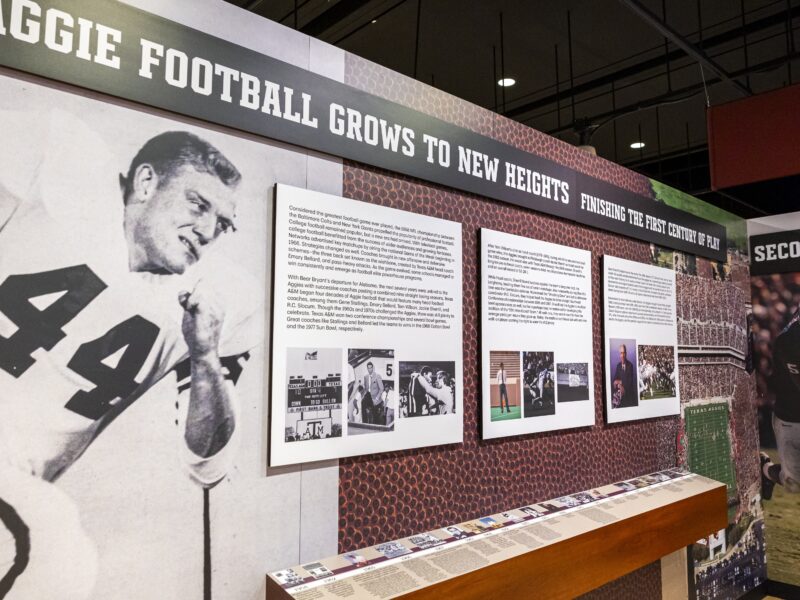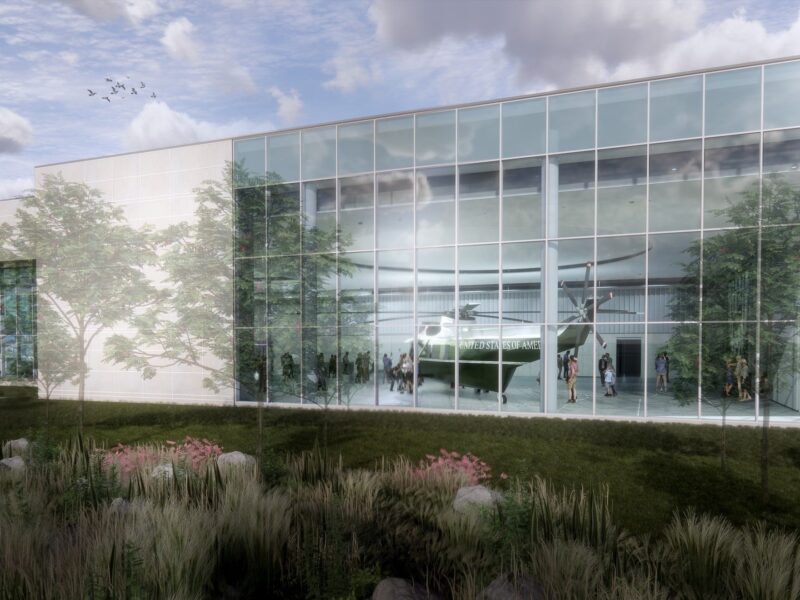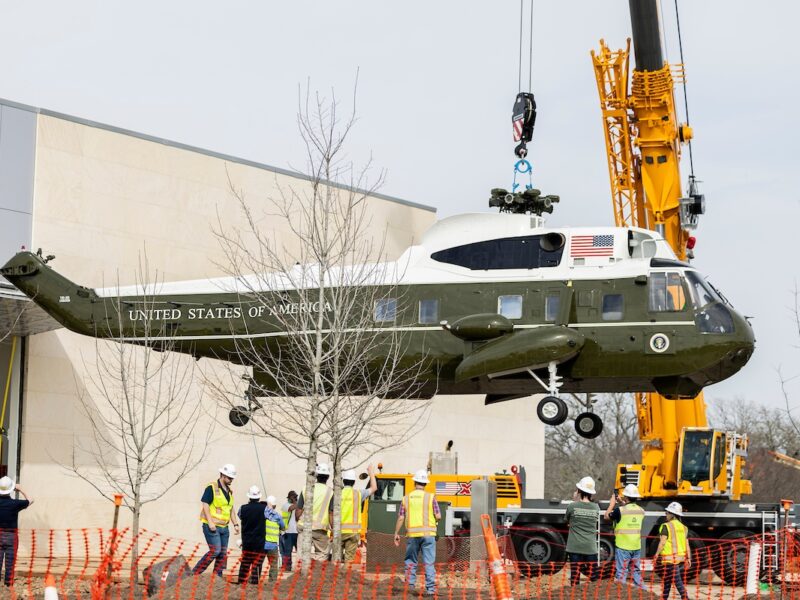Panelists Reflect On Berlin Wall Anniversary
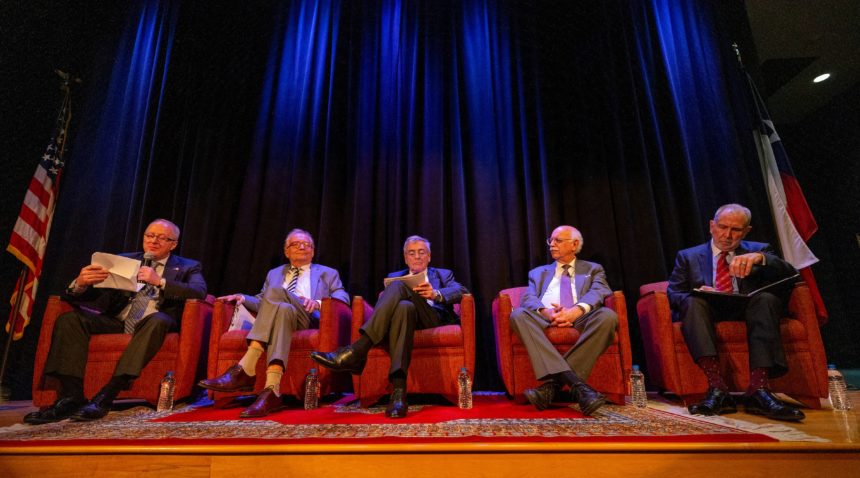
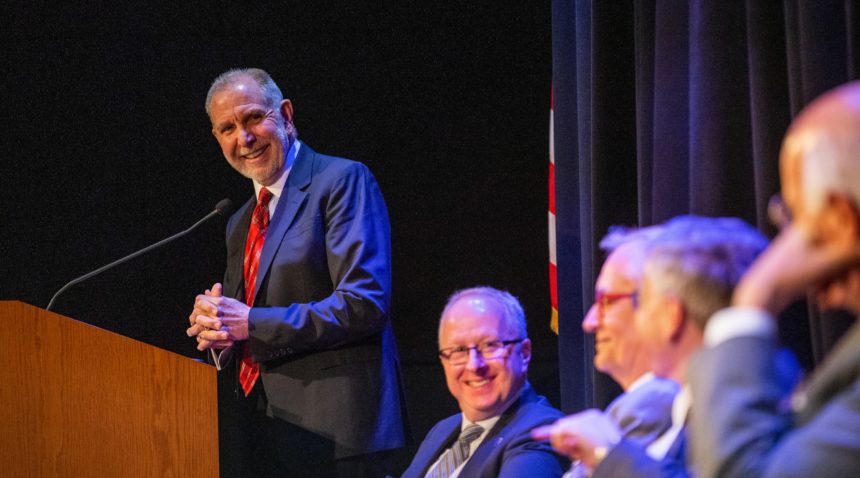
Three decades after the fall of the Berlin Wall, a panel hosted by Texas A&M University’s European Union Center reflected Wednesday on the chain of events that set the German reunification into motion.
Held at President George H.W. Bush’s presidential library in College Station, where visitors are greeted outside by a statue of five bronze horses leaping over a piece of the Berlin Wall, the event focused in part on the role the 41st president played in the process. Guy D. Whitten, director of the European Union Center, served as emcee.
Part of the U.S. delegation was Texas A&M President Michael K. Young, who at the time was deputy legal advisor in the Department of State and worked extensively on the treaty.
Young said the U.S. was insistent that the united Germany should be free of constraints or special obligations, knowing that Germany is a critical ally. “One of the great gifts of the moment,” he said, was that Bush and then-Secretary of State James Baker understood the United States lives in a global community, and to move things in a positive direction, it would be more effectively accomplished in collaboration with other countries.
The United States’ power comes not in its capacity to have a strong military or strong economy, but in the opportunity to “align the world around values we have and the kind of world we want to create,” Young said.
Young said that at the time, reunification didn’t seem inevitable. Andrew Natsios, director of the Scowcroft Institute of International Affairs at the Bush School of Government and Public Service, added that there were was considerable opposition in Europe.
It was at Texas A&M in 1989, two months after he was inaugurated as president, that Bush delivered a major foreign policy speech that outlined his vision for the containment of the Soviet Union, Natsios said. He called the speech “the foundation for all that happened.”
George Luy, Germany’s ambassador to Egypt, credited the success of the reunification to the high professionalism and authority of the senior diplomats involved, including Bush and Baker.
“As a personal witness and as a German citizen, I cannot praise enough the admirable transatlantic partnership and support we experienced from the United States,” Luy said. “The unique, sovereign and firm role that President Bush and Secretary Baker played on our way to German reunification was indispensable for the result.”
On Nov. 9, 1989, East German officials announced that the state’s citizens were free to travel into West Germany. The 97-mile wall had divided Berlin for 28 years, separating communist East Germany from West Germany. The fall of the Berlin Wall changed the face of Europe and began the dissolution of the Soviet Union.
The Two Plus Four agreement — between the Federal Republic of Germany and the German Democratic Republic, and the four countries that occupied Germany at the end of World War II — negotiated soon after allowed for the reunification. Luy said that looking back, it’s the most important agreement ever completed by the Federal Republic of Germany.
Within seven months of negotiations, he said, “it totally turned around” a political and legal situation that seemed irreversible. For the part that Bush and Baker played, Luy said “we remain forever grateful to these two statesmen and their team,” adding that it would not have been possible without the courage of the East German people.
In July, the German ambassador to the United States presented a photograph to the George H.W. Bush Presidential Library and Museum in tribute to Bush’s role in the reunification. Given on behalf of Chancellor Angela Merkel, the photograph depicts Bush standing in front of segments of the wall beside former German Chancellor Helmut Kohl and Mikhail Gorbachev, the Soviet Union’s last leader.
Merkel, who grew up in communist East Germany, told reporters following the 41st president’s death in December 2018 that had it not been for Bush, she “probably couldn’t be standing here.”
In addition to Young, Natsios and Luy, Thomas Meister, the German Consul General in Houston, also participated in Wednesday’s panel.
Media contact: Caitlin Clark, 979-458-8412, caitlinclark@tamu.edu.
